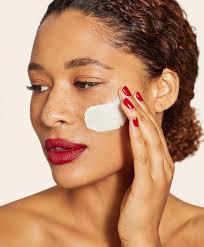Our Blogs
Lorem ipsum dolor sit amet, consectetur adipiscing elit.
Why Skin Health Should Be a Top Priority: Tips for Maintaining Healthy Skin
https://www.aad.org/news • 26 Dec,2024

Skin is more than just the outer layer of our body; it’s our largest organ, and it plays a crucial role in protecting us from the environment, regulating temperature, and maintaining hydration. Yet, we often overlook its importance until something goes wrong. Whether it's dealing with a breakout, dry patches, or even more serious conditions like skin cancer, skin health is something we should all be more mindful of.
Understanding the Skin
Your skin is made up of three main layers: the epidermis, dermis, and hypodermis. Each layer has a specific function:
- Epidermis: The outermost layer, providing a barrier that protects against infection, harmful UV rays, and pollutants.
- Dermis: The layer beneath, which contains blood vessels, nerve endings, and hair follicles, helping regulate temperature and support skin structure.
- Hypodermis: The deepest layer, which stores fat, helps cushion your body, and connects the skin to underlying tissues and muscles.
Given its vast responsibilities, it’s no wonder that skin health can impact everything from your overall well-being to your appearance.
Common Skin Conditions and How to Treat Them
Acne
Acne is a widespread skin condition that can affect individuals of all ages. Whether it's hormonal acne during adolescence or adult acne due to stress or diet, this condition is often misunderstood. The key to managing acne lies in consistent skincare, using appropriate topical treatments like benzoyl peroxide or salicylic acid, and maintaining a healthy lifestyle. For severe cases, a dermatologist may recommend oral medications or topical retinoids.Eczema
Eczema, also known as atopic dermatitis, is a chronic condition that causes the skin to become red, itchy, and inflamed. It often flares up during colder months or in response to certain triggers like soaps, stress, or allergens. Managing eczema requires using gentle, fragrance-free products, moisturizing regularly, and, if necessary, using corticosteroid creams or other prescribed medications.Psoriasis
Psoriasis is an autoimmune disorder that speeds up the skin cell turnover rate, leading to thick, scaly patches on the skin. While there is no cure, psoriasis can be managed with topical treatments, phototherapy, and in some cases, systemic medications to reduce inflammation.Skin Cancer
Skin cancer is one of the most common types of cancer worldwide, but it is also one of the most preventable. The two most common forms are basal cell carcinoma and squamous cell carcinoma, which often result from prolonged sun exposure. Melanoma, a more aggressive form of skin cancer, can develop from existing moles or appear as new dark spots. Regular self-exams, routine dermatologist visits, and applying sunscreen are key in preventing skin cancer and detecting it early.
The Importance of Sun Protection
One of the best ways to care for your skin is by protecting it from the sun. UV radiation from the sun can damage your skin cells, leading to premature aging and increasing the risk of skin cancer. Sunscreen should be a daily part of your skincare routine, even on cloudy days or in winter months. Choose a broad-spectrum sunscreen with an SPF of at least 30 and apply it generously to all exposed areas of your skin.
In addition to sunscreen, wearing protective clothing, seeking shade, and avoiding tanning beds are effective ways to reduce the harmful effects of sun exposure.
Skin Care Tips for Healthy Skin
- Hydration: Drink plenty of water to keep your skin hydrated from the inside out.
- Gentle Cleansing: Use a gentle cleanser that won’t strip your skin of its natural oils. Avoid harsh soaps and opt for products that are pH-balanced and non-comedogenic.
- Moisturize: Even if you have oily skin, moisturizing is essential. Choose a lightweight, oil-free moisturizer if you have acne-prone skin.
- Healthy Diet: A balanced diet rich in antioxidants, vitamins, and healthy fats can benefit your skin. Foods like fruits, vegetables, nuts, and seeds support skin health and reduce inflammation.
The Role of Dermatologists in Skin Health
While at-home skincare routines are crucial, dermatologists play an essential role in managing skin health. They are experts in diagnosing and treating a wide range of skin conditions. Regular visits to a dermatologist for skin checks can help catch skin issues early, from acne and eczema to more serious conditions like melanoma. If you notice any changes in your skin, such as new growths, moles that change shape, or persistent rashes, consulting a dermatologist can provide peace of mind and effective treatment.
Conclusion
Taking care of your skin is not just about looking good, it’s about feeling good and maintaining your overall health. From practicing sun safety to managing chronic conditions like acne or psoriasis, the steps you take today to care for your skin will pay off in the long run. Remember that healthy skin is a reflection of your overall health, and a little care can go a long way in keeping it vibrant, strong, and glowing.
